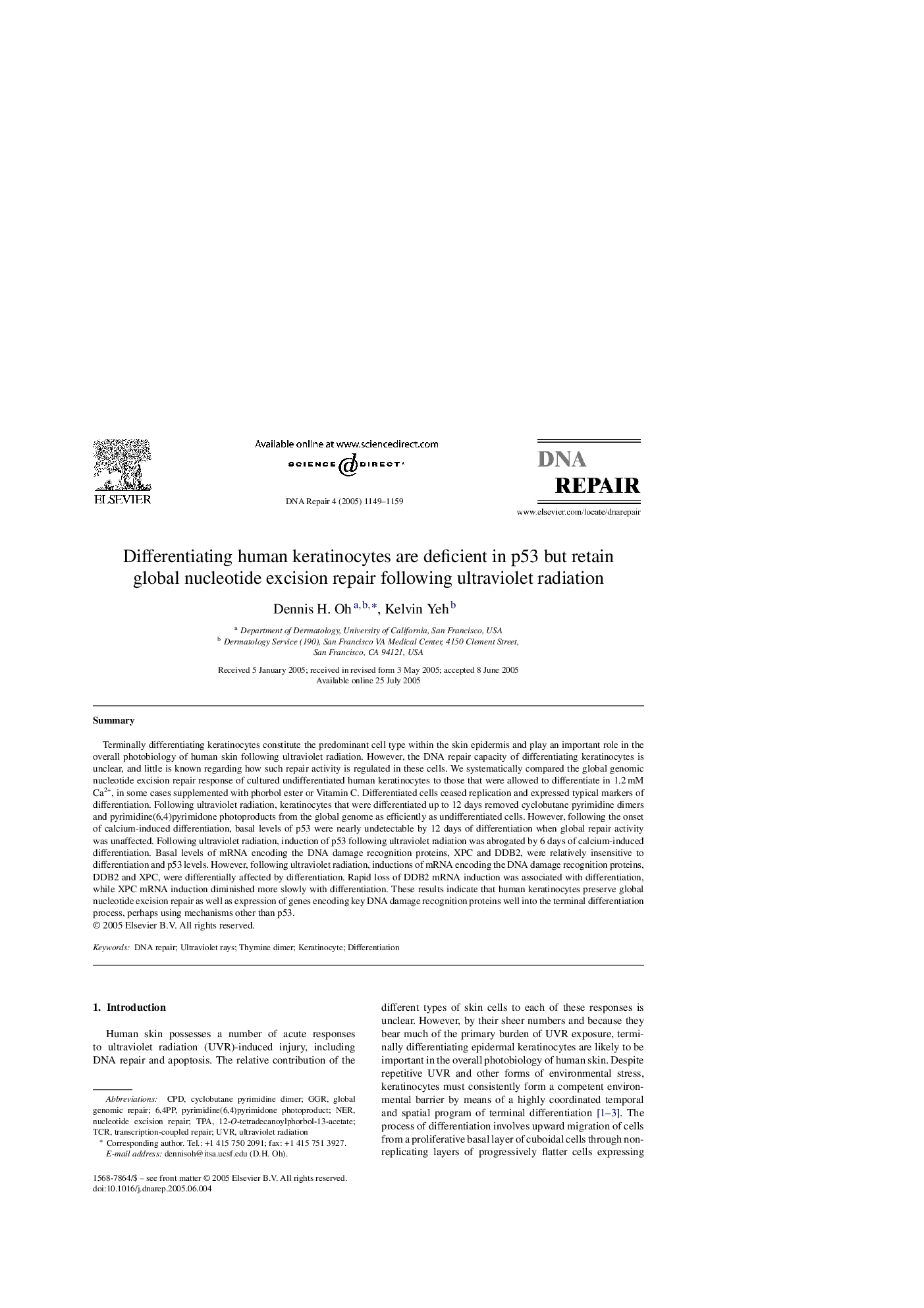| کد مقاله | کد نشریه | سال انتشار | مقاله انگلیسی | نسخه تمام متن |
|---|---|---|---|---|
| 10823593 | 1061910 | 2005 | 11 صفحه PDF | دانلود رایگان |
عنوان انگلیسی مقاله ISI
Differentiating human keratinocytes are deficient in p53 but retain global nucleotide excision repair following ultraviolet radiation
دانلود مقاله + سفارش ترجمه
دانلود مقاله ISI انگلیسی
رایگان برای ایرانیان
کلمات کلیدی
tPATCr12-O-tetradecanoylphorbol-13-acetateUVRcpd - CPDNER - DOWNUltraviolet radiation - اشعه ماوراء بنفشGGR - بارDNA repair - ترمیم DNATranscription-coupled repair - تعمیر رونویسی همراهnucleotide excision repair - تعمیر مجدد نوکلئوتیدیGlobal genomic repair - تعمیر ژنوم جهانیDifferentiation - تفکیکThymine dimer - دیمر تینینcyclobutane pyrimidine dimer - دییریر پیریمیدین cyclobutaneUltraviolet rays - پرتو های فرابنفشKeratinocyte - کراتینوسیت
موضوعات مرتبط
علوم زیستی و بیوفناوری
بیوشیمی، ژنتیک و زیست شناسی مولکولی
زیست شیمی
پیش نمایش صفحه اول مقاله

چکیده انگلیسی
Terminally differentiating keratinocytes constitute the predominant cell type within the skin epidermis and play an important role in the overall photobiology of human skin following ultraviolet radiation. However, the DNA repair capacity of differentiating keratinocytes is unclear, and little is known regarding how such repair activity is regulated in these cells. We systematically compared the global genomic nucleotide excision repair response of cultured undifferentiated human keratinocytes to those that were allowed to differentiate in 1.2Â mM Ca2+, in some cases supplemented with phorbol ester or Vitamin C. Differentiated cells ceased replication and expressed typical markers of differentiation. Following ultraviolet radiation, keratinocytes that were differentiated up to 12 days removed cyclobutane pyrimidine dimers and pyrimidine(6,4)pyrimidone photoproducts from the global genome as efficiently as undifferentiated cells. However, following the onset of calcium-induced differentiation, basal levels of p53 were nearly undetectable by 12 days of differentiation when global repair activity was unaffected. Following ultraviolet radiation, induction of p53 following ultraviolet radiation was abrogated by 6 days of calcium-induced differentiation. Basal levels of mRNA encoding the DNA damage recognition proteins, XPC and DDB2, were relatively insensitive to differentiation and p53 levels. However, following ultraviolet radiation, inductions of mRNA encoding the DNA damage recognition proteins, DDB2 and XPC, were differentially affected by differentiation. Rapid loss of DDB2 mRNA induction was associated with differentiation, while XPC mRNA induction diminished more slowly with differentiation. These results indicate that human keratinocytes preserve global nucleotide excision repair as well as expression of genes encoding key DNA damage recognition proteins well into the terminal differentiation process, perhaps using mechanisms other than p53.
ناشر
Database: Elsevier - ScienceDirect (ساینس دایرکت)
Journal: DNA Repair - Volume 4, Issue 10, 28 September 2005, Pages 1149-1159
Journal: DNA Repair - Volume 4, Issue 10, 28 September 2005, Pages 1149-1159
نویسندگان
Dennis H. Oh, Kelvin Yeh,